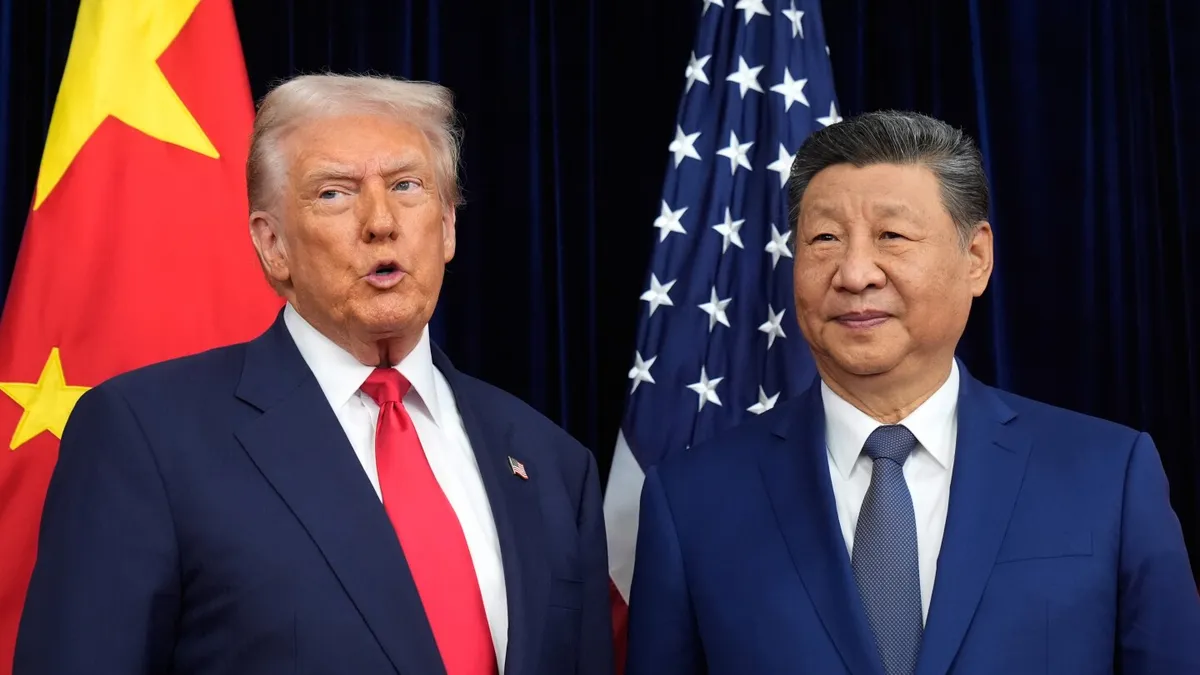
President Donald Trump has sparked significant concern by indicating that the United States might resume testing nuclear weapons for the first time in nearly three decades. During a post on his social media platform, Trump suggested that such testing would occur on an “equal basis” with Russia and China. This statement has raised alarms among international leaders and arms control advocates, especially given the existing global ban on nuclear tests.
Following Trump's announcement, Kremlin spokesman Dmitry Peskov reiterated a warning from President Vladimir Putin, emphasizing that Russia would respond in kind if any nation resumes nuclear testing. Peskov stated, “If someone abandons the moratorium, Russia will act accordingly,” highlighting the fragile state of international nuclear arms agreements.
While there is currently no indication that the U.S. will actually detonate nuclear warheads, Trump’s remarks signal a potential shift in U.S. nuclear policy. The U.S. military has conducted missile tests capable of delivering nuclear payloads, but has not executed any nuclear detonations since 1992. The Comprehensive Nuclear Test Ban Treaty (CTBT), which the U.S. signed but did not ratify, has been largely observed by nuclear-capable nations, with North Korea being a notable exception.
Trump stated, “Because of other countries testing programs, I have instructed the Department of War to start testing our Nuclear Weapons on an equal basis,” indicating an urgent demand for a reassessment of the current nuclear testing landscape.
In response to Trump’s remarks, Massachusetts Senator Ed Markey, co-chair of the congressional Nuclear Weapons and Arms Control Working Group, urged against the resumption of nuclear tests, calling it a “reckless decision” that could trigger a new nuclear arms race. Meanwhile, U.N. Secretary-General Antonio Guterres expressed alarm, stating, “Current nuclear risks are already alarmingly high,” and stressed the need to refrain from any nuclear testing under any circumstances.
In the context of escalating nuclear rhetoric, President Putin recently announced tests of new nuclear-powered weapons, although he clarified that these do not constitute nuclear testing as defined by international standards. Peskov emphasized that the tests of the Burevestnik nuclear-powered cruise missile and the Poseidon nuclear-powered underwater drone are not a violation of the global ban.
A spokesperson for the Chinese Foreign Ministry urged the U.S. to honor its commitments under the Comprehensive Nuclear Test Ban Treaty and refrain from carrying out nuclear tests, illustrating the international community's desire for restraint and diplomatic dialogue.
Arms control advocates, including Daryl Kimball, executive director of the Washington-based Arms Control Association, criticized Trump’s remarks as misguided and potentially hazardous. Kimball warned that resuming nuclear tests could ignite strong public backlash, particularly in Nevada, and might destabilize the existing Nuclear Nonproliferation Treaty.
Japanese survivors from the atomic bombings of Hiroshima and Nagasaki condemned Trump’s announcement. Jiro Hamasumi, secretary general of the survivors organization Nihon Hidankyo, stated that such actions undermine global efforts for a nuclear-free world and are intolerable.
As the world awaits further clarification on Trump’s nuclear stance, the implications of these developments will likely influence international relations and nuclear policy for years to come.